#15 From the Twitter archives, part 1: The Conversation
Francis Ford Coppola’s masterful 1974 conspiracy thriller.
*spoilers ahead*
Note that this isn’t a review; furthermore, it assumes familiarity with the film. If the reader hasn’t seen it I’d recommend holding off on reading this. Due to the fragmented nature of Twitter threads I’ve added headings for readability.
..
Intro
The early 70s was a time of paranoia. America was still reeling from a decade of assassinations. Vietnam had made Eisenhower’s warnings about the military-industrial complex disturbingly resonant. There was an arch-paranoiac in the Whitehouse. ‘74 saw the release of The Conversation.
Acoustic analysis
Harry’s analysis of the conversation highlights problems with the pursuit of objective knowledge. The crucial part (‘He’d kill us if he got the chance’) starts out unclear, until Harry cleans it up. But in the process, he lets his own sympathies determine the interpretation.
David Shire’s music
The film’s score is stunningly original. The solo piano evokes Harry’s lonely melancholy perfectly, while the electronic dissonance (during the eerie dream sequence, and in the ones surrounding the murder) is like almost nothing else in cinema. Only 1971’s Andromeda Strain is comparable.
Threatening Eros
Harry is especially mistrustful of women. You get the feeling he sees sexuality as one of those uncontrollable elements that threaten to bring chaos into his ordered life (his Catholicism?). Consider how irritated he gets by Stan taking photos of the girls putting on lipstick.
Fatedness
Rarely for a Hollywood production (though less rare in the 70s), the film evinces a tragic sensibility. Harry specifically tries to avoid enabling others who may intend evil, but as in Greek tragedy, the train of events that leads to murder plays out unstoppably, with Harry a tool of fate.
Foresaken
Harry seems compelled to do penance for the deadly consequences his work had years before. Probably this explains his self-punishing asceticism. In the confessional, he divulges some details of those events, apparently for the first time. I believe he may feel forsaken by God.
Symbolic destruction
Despite all Harry’s good intentions, evil was the outcome yet again. His breaking of the figurine of the Virgin, ostensibly to look for a listening device, is no doubt highly symbolic. Harry’s paranoid obsessiveness, inspired by his religiosity, leads him to destroy everything, including his faith.
Parallel perceptions
It’s interesting that Coppola claims to have written his script for The Conversation in the late 60s, when Watergate was still just a DC hotel. ‘74 also saw the release of another highly resonant slice of cinematic paranoia, Alan Pakula’s Parallax View. Clearly something was in the air.



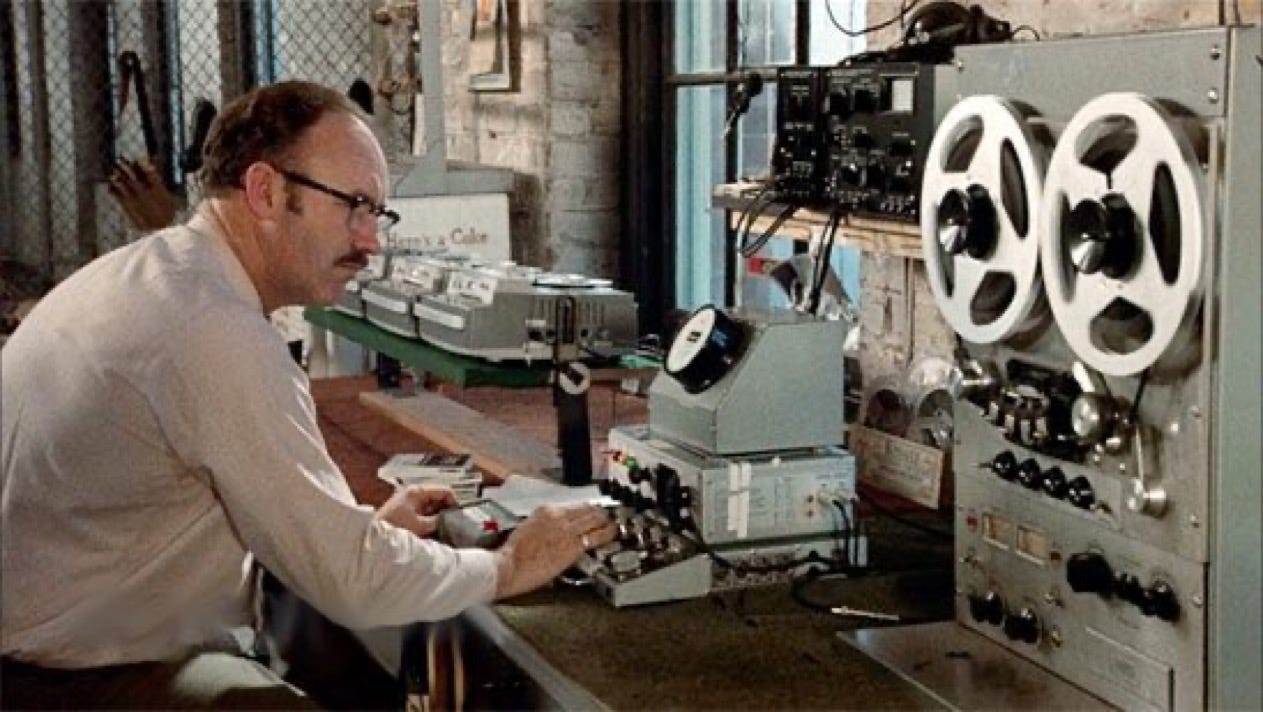
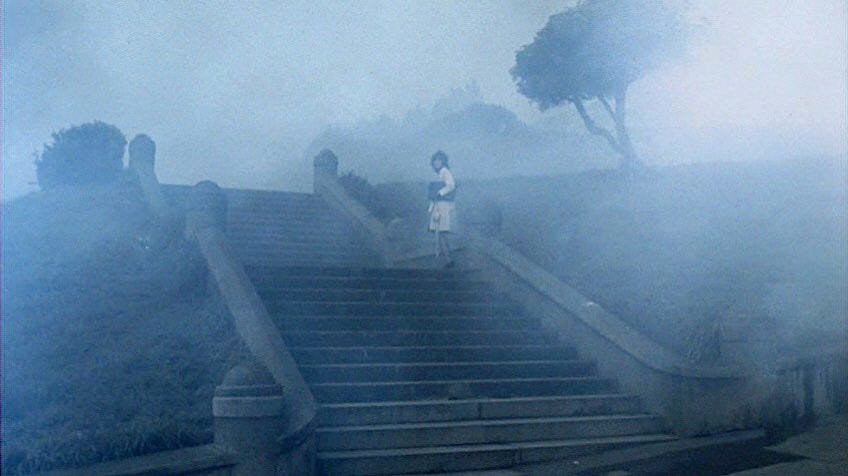
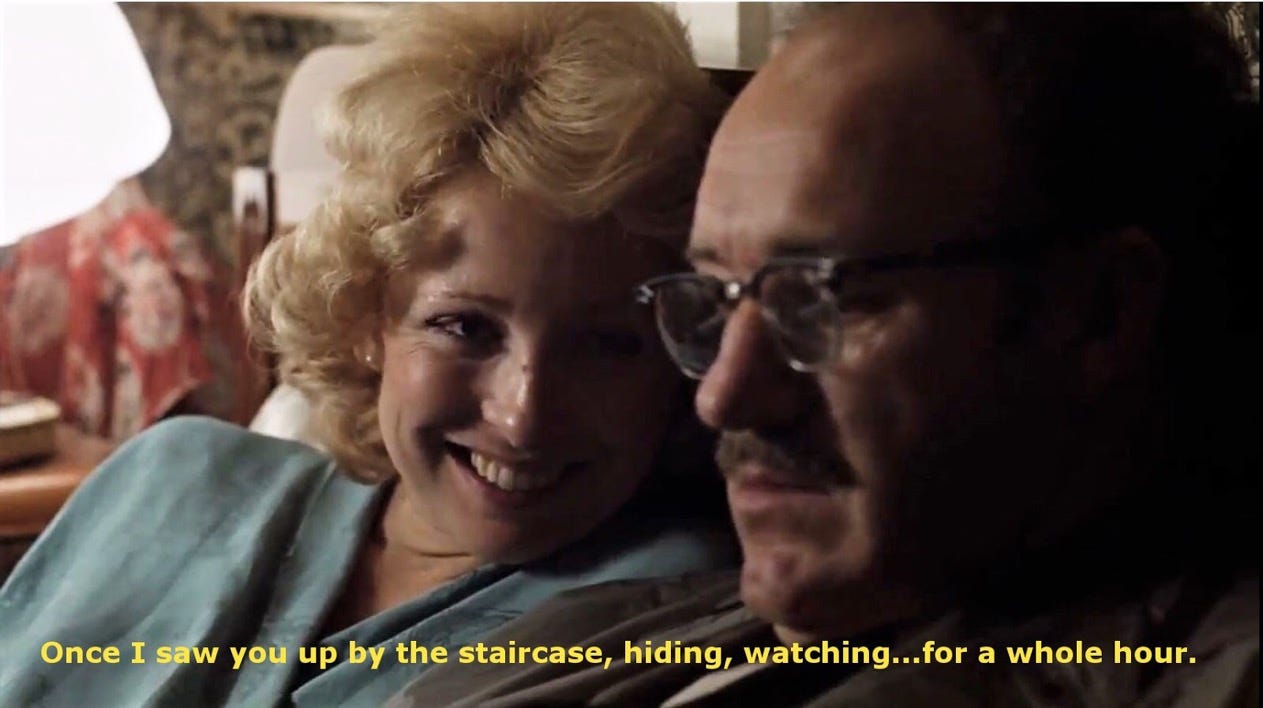
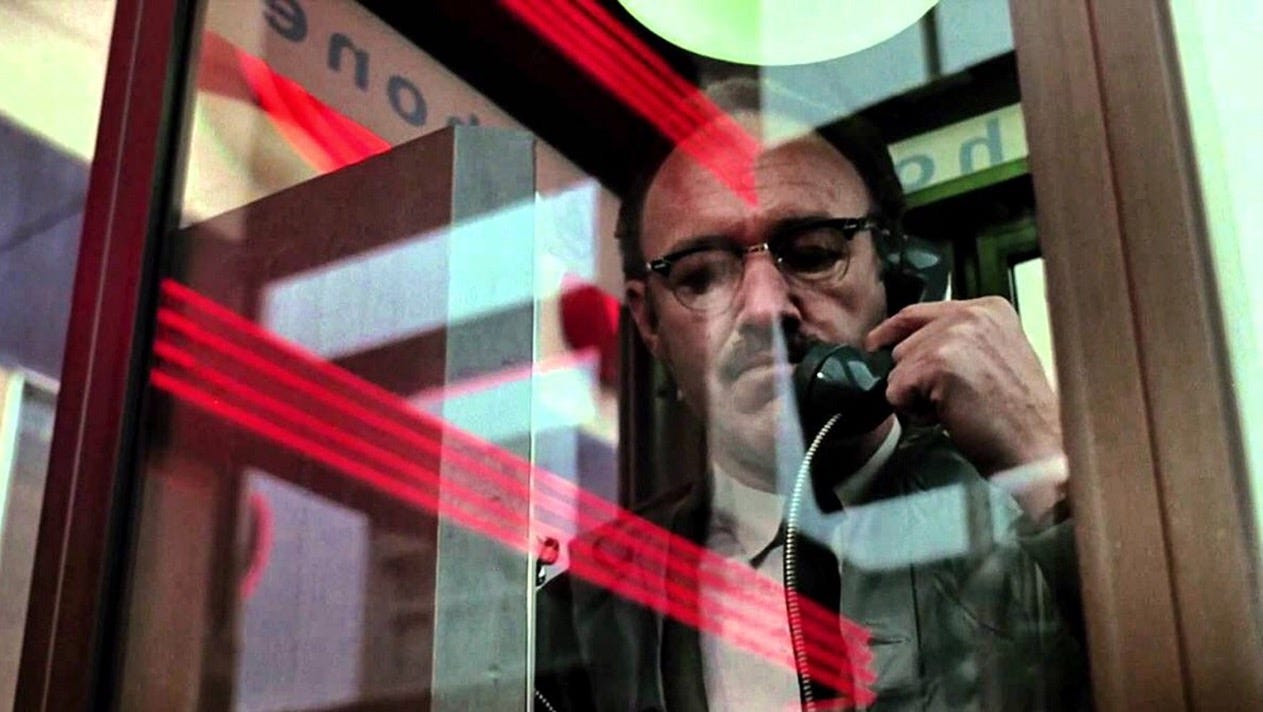

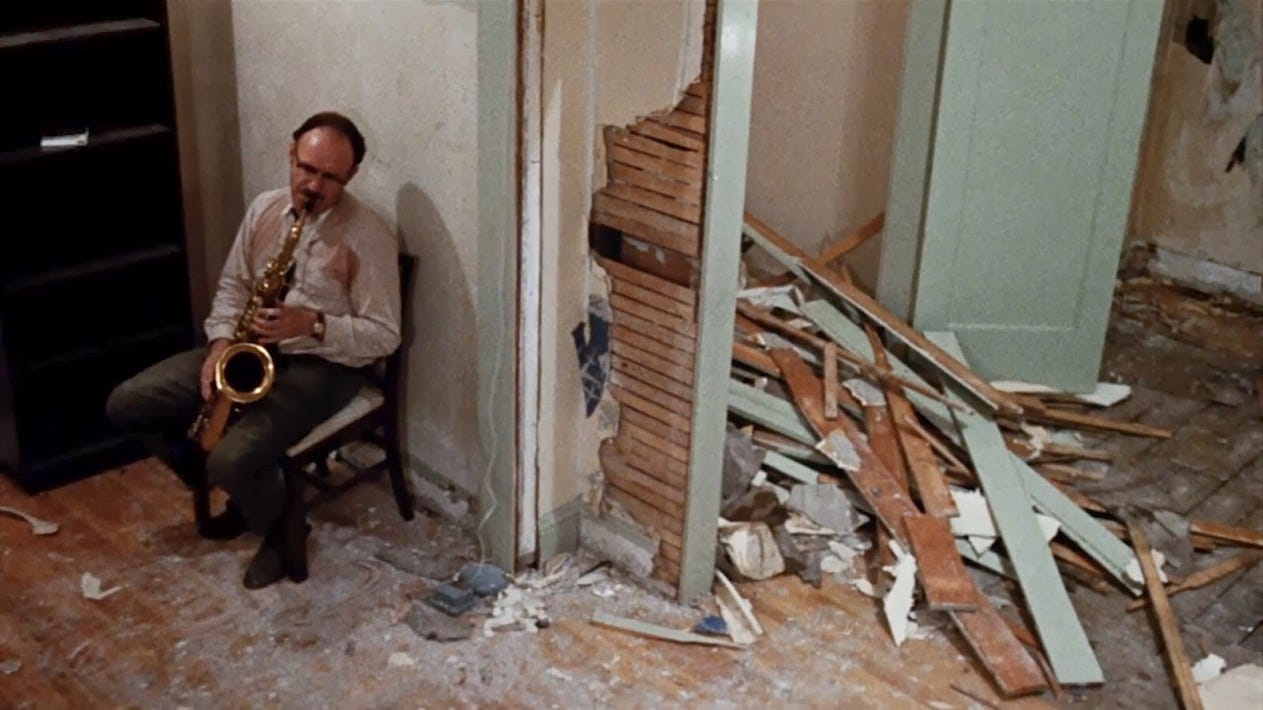

This is a very good use for all that squandered twitter energy. I downloaded my twitter archives the other and, well, let's just say it didn't make me want to repost anything.